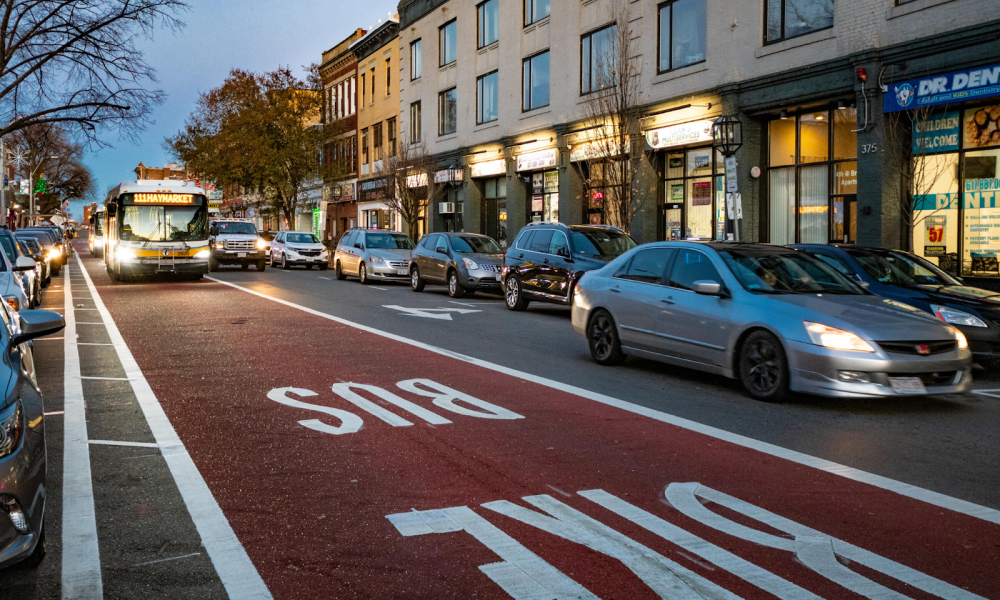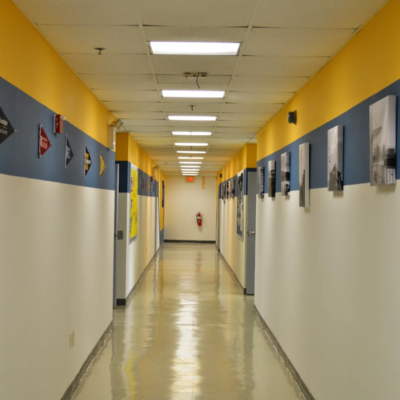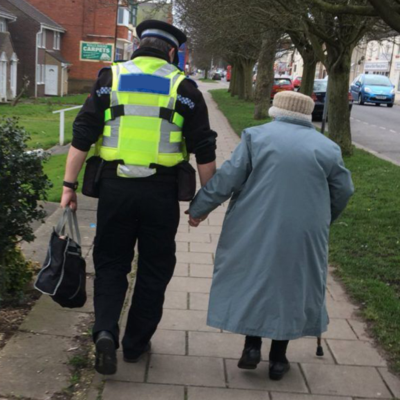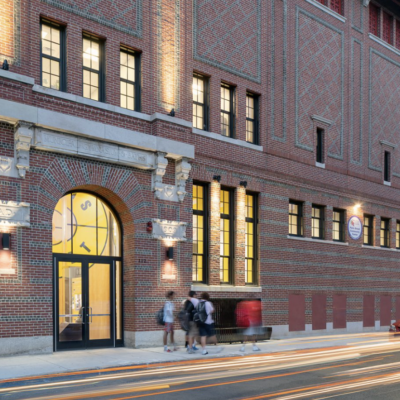Is the MBTA’s Better Bus Project Working? – Riding Out the City’s Promising Road Ahead
For any person living in a big city, having a quality public transportation system is a necessity. People rely on buses and trains to get where they need to go, when they need to get there. However, transportation, specifically buses, often struggle to meet this quota, especially in a city like Boston, Massachusetts. The Massachusetts Bay Transportation Association, or MBTA, which serves the Greater Boston area, has always received ridicule due to its inconsistent and fickle service. Its trains fail to run on a consistent schedule and can arrive at seemingly random times, while its buses extend rather than shorten riders’ commute via both wait time and slow movement. This is affirmed by countless people online, with social media users on various platforms denouncing the MBTA; one Reddit user called the system a “disorganized and demoralized organization” and “mismanaged beyond belief” operation, which further affirms not only MBTA’s failure, but also passenger’s dissatisfaction. People are in desperate need of better quality service that can get them across the city with ease.
Fortunately, the MBTA is attempting some steps toward a better transportation system in the city, particularly for its buses. Since 2018, the MBTA enrolled a set of changes to the existing system, also known as the “Better Bus Project,” and have been working to implement new changes to bus routes, roads, and technology to rectify its service issues. According to the MBTA’s website, the changes are informed directly from complaints received: “You told us what needs to be improved, and we heard you.” The MBTA also highlighted the four key goals of the project: the bus will attract more riders, be more timely and convenient for riders, reliable, more comfortable, and accessible. All things considered, these goals seem like they’ll warrant an optimal bus system for riders. However, there are still several questions that remain: Will it be successful in actually solving the frustrating issues at hand? Or will it fall flat and simply be another failure in the MBTA’s long history of such?
One of the first and foremost elements of the Better Bus Project is its redesign and extension of travel patterns. The MBTA is attempting to satisfy riders by changing routes, extending operation times, and even implementing new routes — this is with the hope of extending service to the entire Boston area and surrounding towns. As of 2024, the MBTA has completed most of the bus route changes, and are still in the process of planning a series of additional changes and new connections to train services across the city. While a rehaul of its bus service seems like a welcomed change, many riders are frustrated with the MBTA’s approach. Adam Shah, a student at the University of Massachusetts, Boston writing for the respective independent newspaper, conveys the idea that the MBTA is missing the most important part of the picture: “The MBTA is simply expanding the range of existing bus lines instead of implementing new ones…” Shah communicates the idea that the MBTA is failing to extend service by implementing new buses, but merely extending the range of select buses, which ends up making a minimal difference. He also explains how there are a number of “harder-to-reach” areas that are not accessible via MBTA, which encompasses towns outside the Greater Boston area, including Revere, Chelsea, and Everett: Nothing is being done to help those areas due to failing to implement new routes. Shah’s ideas are a reflection of people across the city; being a student in Boston, he is one of the many passengers in question when it comes to the redesign. Therefore, while redesigning bus routes surely helps the city, there are much more substantial service items that the MBTA could be doing too.
A second element of the Bus Project that the MBTA is working on is “transit priority infrastructure,” which essentially refers to new implementations to give transit vehicles priority and easier passage across the city. The bulk of this change refers to bus lanes, which are being added to various “important” roads across the city, or simply put: high-traffic roads populated by personal vehicles and buses. These bus lanes regard an entire lane of road that is devoted to buses only; they commonly run in the center of a road and allow buses to bypass traffic. So far, it has been implemented on Columbus Avenue, with more plans currently being either enrolled or in planning.
One of the main arguments that supports this bus lane and future ones is the idea that less road space, caused by a decreased presence of cars, results in the ability to create more green space and recreational areas for urban residents. According to the Bay State Banner, Better Bus Project consultant David Lee cites this factor and the simple fact that it makes commutes better as a leading motivation for the project at all. However, others are concerned with the permanent implementation of these bus lanes. Various Bostonians and passengers of the MBTA think that this change is a bit too hasty for how permanent the change is. One rider summarized the collective concern, also via the Bay State Banner, by saying: “When you do infrastructure like this, it’s very permanent.” Bus lanes are essentially an irreversible change to Boston streets, and a lack of consideration and premature action may end up being more harmful than it is helpful: implementing bus lanes with a lack of consideration is a permanent change to Boston roads. The new lane for buses only means traffic patterns and behaviors will be altered permanently. There are a number of benefits with the new implementation of bus lanes, but at the same time perhaps the change could have used a bit more examination before its implementation to prevent potentially harmful and irreversible changes to our roads.
The MBTA is also hoping to provide both bus stop enhancements and modernizations to its buses. The bus stop improvements are pretty self-explanatory, with the MBTA’s action plan mentioning that they hope to make bus stop locations more accessible than they currently are by providing safer accommodations for pedestrians and disabled individuals. In addition to this, though, is the likely more influential aspect of the MBTA’s future: bus electrification. Currently, there are a variety of electric buses present in the city, namely for the Silver Line. Recently, the MBTA also put in a $119 million contract for 80 new electric buses to replace existing models in the city (Mass Transit Magazine). This is expected to come to fruition in the next 3 to 5 years, which will cause a majority of buses to be electric. Opposed to many of the MBTA’s other decisions, this initiative seems to have been met with relatively positive feedback. TransitMatters, a non-profit transportation advocacy group based in Boston, has reviewed the MBTA’s electrification efforts, saying that they not only provide faster service to people across the city and reduce pollution, but will also “get people out of cars and open up opportunities for housing.” Although TransitMatters ideas are regarding train electrification, the ideas are applicable to bus electrification as well: doing so will provide more efficient service, be more environmentally friendly, and also reduce the amount of cars present on the road — giving more space to develop pressing projects, such as housing. As a whole, bus electrification is a very important change to Boston’s transportation system, and will have increasingly positive outcomes as its project unfurls.
In general, the reception of the MBTA’s actions amidst their Better Bus Project have been poor, with many disagreeing with its ideas for improvement or urging the MBTA to reconsider specific elements like bus routes and lanes. What matters most, however, is the perceptions of this project from actual passengers — like myself. As a student going to school in the city, I am constantly standing on the curb outside of my school waiting for the bus to show up so that I can be on my way. What that currently looks like is waiting extended (and often aggravating) periods of time for a bus to actually show up, and leaving it to a 50-50 chance for whether or not I will arrive at my destination on time. Obviously, this is not optimal, and I am constantly hoping that someone will come along and morph the bus system into a much more reliable and non-anger-inducing system that can take me where I need to go. Perhaps that Better Bus Project is exactly what I have been waiting for!
Generally, the proposed changes here seem to be beneficial for riders like me: a consistent schedule would eliminate the endless minutes of waiting for a bus to arrive, bus lanes would provide a quicker and smoother commute to my destination, and accessibility and stop improvements would create safer accommodations for my fellow students and I. While it is still a variable whether my wishes will actually come true or not and actually solve the Boston bus crisis, the possibility that they may is still a massively exciting prospect. There is so much skepticism surrounding the project, and I must be honest when I say that some of the MBTA’s moves concern me as a rider, but only the future can reveal the MBTA’s success or failure. As for passengers like myself, we will have to wait a year or two in optimism for the Bus Project to move towards quality bussing service in the Boston area.







